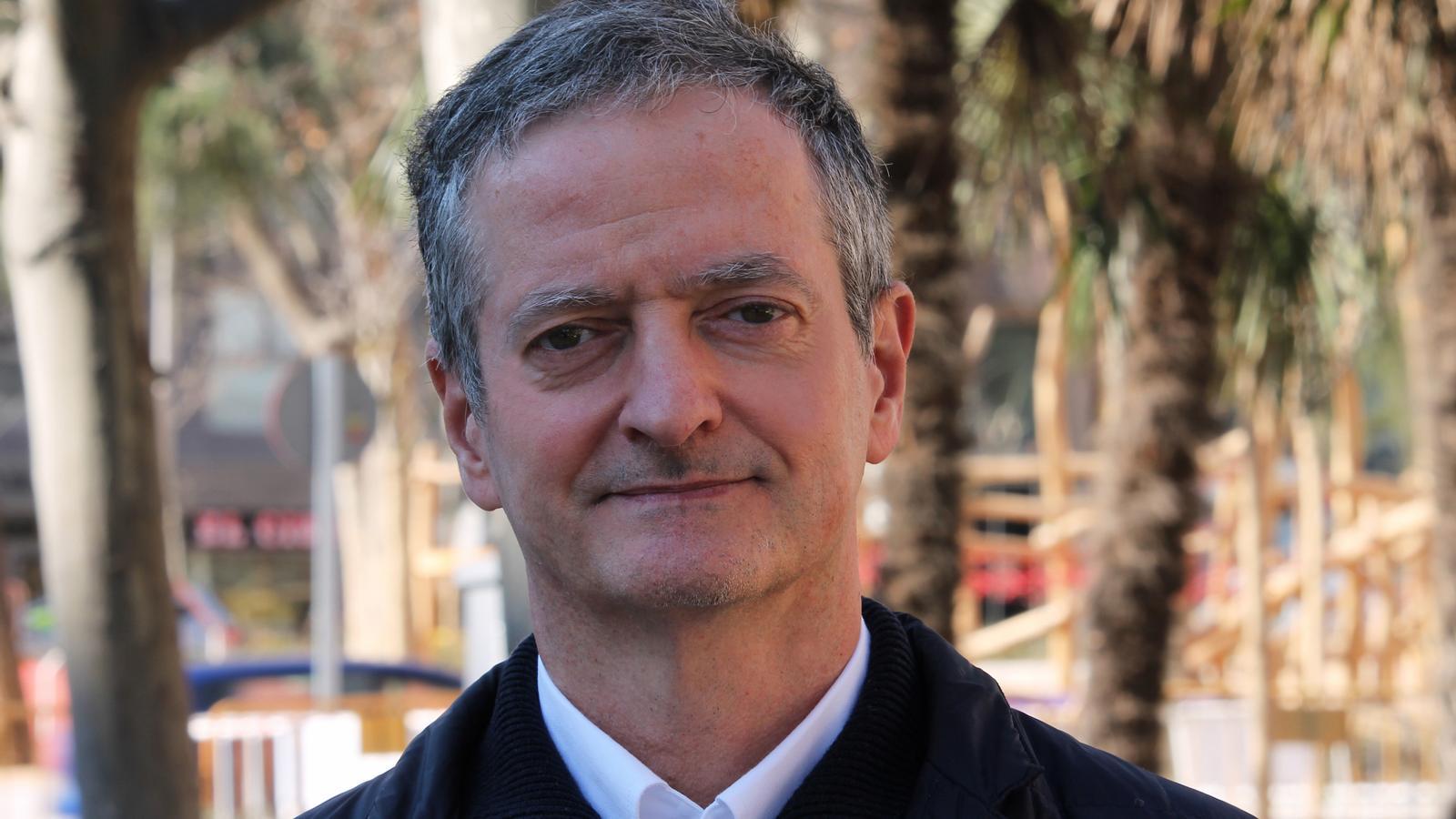José María Mollinedo: "We have warned of Montoro's anomalous behavior since 2013."
General Secretary of the Gestha Treasury Technicians' Union


BarcelonaThe outbreak of the Montoro case has put the PP and the Treasury in the spotlight. The general secretary of the Treasury technicians' union, Gestha, José María Mollinedo, speaks to ARA to address the issue.
How could the irregularities in the Montoro case be passed off? Even Some senior officials of the Tax Agency who were indicted have now been dismissed.
— Some people who held important positions have been removed, but it's striking because usually when there's a change in government, people in positions of trust are replaced, but there are those who had stayed on. Like Rogelio Menéndez [currently the financial director of the Loterías]. Contrary to what might be expected, he continued in a relevant position [at the Tax Agency] with the current government.
Why did Montoro's right-hand man stay with Sánchez's administration?
— It's astonishing that it happened. Knowing the person he is and considering that Rogelio Menéndez is the brother of Santiago Menéndez, who was the director of the Tax Agency at the time. We don't understand how someone could have been in such a high-profile position of trust with these relationships. But we're not entirely surprised by some of the revelations that are coming out [from the case file]. Since 2013, we've been warning about anomalous behavior by Cristóbal Montoro, such as when he boasted of having knowledge of the tax details of some people who questioned his decisions.
Did you already have suspicions?
— For enriching himself with improper income, no. This has not yet been verified in the judicial investigation, although there is disturbing information about payments to companies in which he may have an interest or be a shareholder. But the political use was clear: we saw misuse of information about people who criticized him. Montoro criticized parties like the United Left in Madrid for having tax problems. He also did the same with Pedro Saura, Socialist spokesperson on the Finance Committee, and with PRISA and COPE, as well as journalists. The political use was most noticeable when he leaked information about his party's opponents.
How about Esperanza Aguirre?
— Yes, by leaking information from tax returns to discredit them. This was also the case with Aznar, or when he said on television that Juan Carlos Monedero (Podemos) would be inspected. He had information he never should have had because no one working outside the Tax Agency can know tax information. Even those of us who work there can't know it from anyone who isn't included in each person's audit plan.
And how did he get that data? What controls are in place to prevent it?
— The controls are very powerful. There is a security protocol for Tax Agency officials, and we must account for all the access we make. Periodically, we conduct a review of files that are verified as not linked to the verification plan, and you must justify their origin. The information appears on the accesses with the time and password of the person viewing it. In Montoro's case, we imagine that the person who accessed the information was not a civil servant, but rather a trusted official. Possibly, it was done through people in Santiago Menéndez's office, from the Tax Agency leadership, and was forwarded to his brother, Rogelio Menéndez, one of the minister's cabinet members. A crime of revealing secrets carries one to four years in prison. And three to five for civil servants.
Is a case like Montoro's common?
— It hadn't happened. I'm not saying there weren't secretaries of state with that information because the dossier era dates back a long time. Not only since Felipe González's first socialist term, but also later. But it has been had sotto voceWhat's new with Montoro is that he's made it public and has flaunted that knowledge.
Could this have been avoided with the whistleblower law, passed two years ago?
— I doubt it because the political use was public, and he said it from the Congressional speaker's podium. Perhaps if it happened and someone in the cabinet wanted to report the access and transmission of improper information, or someone from the Economic Team or the ministry would say that tax measures are being tailored to the taxpayers who demand them.
Beyond the Montoro case, there's a fiscal issue on the table: the unique financing of Catalonia. Is it feasible?
— The Minister of Finance has said that Catalonia's financing system will reach all regions. What was previously called specificities is called singularity. The changes have been resolved with new criteria that allow new regions to move up the distribution ladder, but everyone wins because the pie is bigger. It's moving slowly because the legislative process isn't simple. Now, the agreement from Monday of last week confirms that the 832-person ATC staff is insufficient to manage personal income tax. This cannot be resolved with sustained job offers and could take many years. The staff would need to be increased by more than 5,000 people and a powerful IT system.
Is ordinality feasible?
— We see it as viable. It's the most critical point of constitutional risk, but it wouldn't harm it. It would benefit Madrid, then the Balearic Islands and Catalonia. However, the current agreement is much less ambitious than the 2024 one [the ERC-PSC investiture pact].
